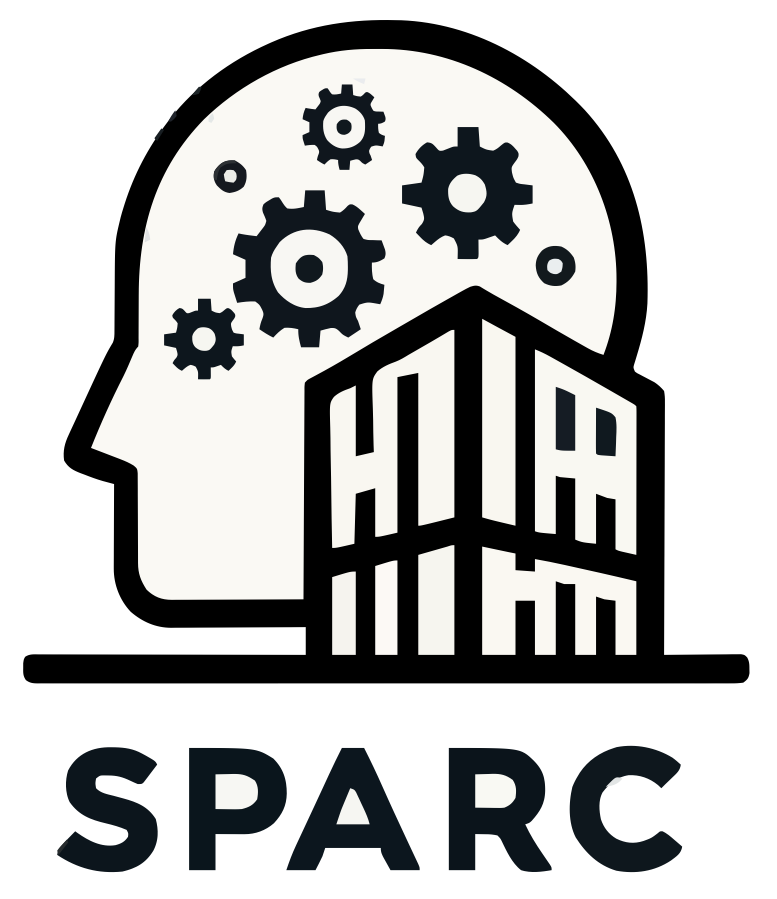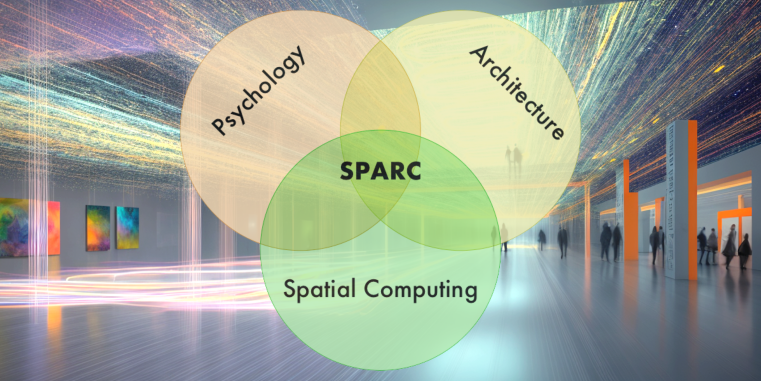

Despite decades of research, psychological theories on how people perceive and use space are rarely used in architectural design practice. Scientific evidence is fragmented into models that treat navigation, visual attention, and spatial learning as separate processes. This artificial separation produces tools that don't align with how people actually experience and use space.
SPARC aims to bridge this gap by developing integrated computational frameworks that capture the continuous interplay between movement, perception, and cognition in built environments. Our work sits at the intersection of geoinformatics, cognitive psychology, and architecture.
We use virtual reality and in-the-wild empirical studies, spatio-temporal data analytics, mobile eye-tracking, and Space Syntax. Guided by the principles of use-inspired basic research, we focus on solving those real-world challenges that push the boundaries of existing research methods and theories.
Funding received for a new German-Korean collaboration

SPARC and Human-Centered Interior Environment Lab led by Prof. Ji Young Cho at Kyung Hee University in Seoul have received joint funding from the German Research Foundation and the National Research Foundation of Korea. The project is titled "Measuring mental representations of complex 3D structures for wayfinding: bringing together geoinformatics Virtual Reality tools and domain-specific psychometric spatial ability tests" and will involve mutual research visits of 3-4 weeks (Jakub in Seoul, Ji Young in Münster) over the upcoming year.
Talk on 3D Sketch Maps

Jakub was invited to give a talk at the training school of the Marie Sklodowska-Curie-UKRI Doctoral Network - "SCALA – Spatial Communication and Ageing across Languages". The group of 16 Doctoral Candidates and their supervisors investigates how spatial communication happens across languages, age groups, and how technology can affect it. The training school was hosted in Florence, Italy at the beautiful historical building of the Montedomini Training Center. The building was sufficiently confusing to practically demonstrate the need for this line of research.
The talk sumarised the output of the 3D Sketch Maps project, as an example of how technology (in this case, VR and AR) can assist people in expressing and communicating complex spatial information.
New publication on how architects interpret building layouts
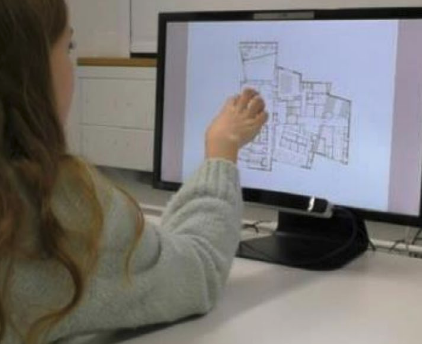
New paper, "Interpreting Architectural Drawings: The Role of Gaze and Gestures in Cognitive Offloading", now published in Applied Cognitive Psychology (open access), coming out of the PhD thesis of Yesol Park at ETH Zürich.
It shows how architects use gaze and hand gestures as complementary strategies to offload spatial thinking - across two different interpretation tasks and types of building layouts. Abstract layouts invite exploratory looking and representational gestures; detailed layouts foster focal attention and deictic pointing.
Really loved this comment from the reviewer: "All in all, this is exactly the kind of research I would like to see more of: investigations into practical problems using a sound theoretical basis and sophisticated methods." - this is exactly the kind of research I love doing.
Open-access paper: https://doi.org/10.1002/acp.70127
SPARC awarded a grant to enhance mobile eye-tracking in architectural contexts

Our new 3-year project on linking walking trajectories and eye-movement trajectories has been funded by the German Research Foundation. Project SPACE-EYE: Spatial and Architectural Evidence from Movement-aware Eye-tracking will combine mobile eye-tracking and motion data to build a computational framework that models gaze and locomotion together (...of course in realistic architectural settings).
This has implications for areas interested in modelling how people move through and view space, e.g. in signage planning, or emergency evacuation scenarios.
The project will welcome a fully-funded PhD student for 3 years.
New publication from the 3D Sketch Maps project

New publication from the 3D Sketch Maps project led by Marie Simonet published in Cognitive Research: Principles and Implications:
Probing mental representations of space through sketch mapping: a scoping review
Our review brings together 24 studies to examine how sketch maps externalize cognitive maps of buildings, neighborhoods, and cities. We highlight both the strengths and limitations of sketch mapping—from traditional pen-and-paper to VR tools—and point to emerging opportunities.
Key findings:
- There's an intrinsic conflict: sketch maps are used predominantly in less-structured studies (real world setups, unrestricted drawing on blank paper), yet researchers predominantly use quantitative methods to analyse sketch maps. These "punish" participants for generalisations and inconsistencies that are natural in such drawings. Analysing *Qualitative Spatial Relations* is a way to bridge this gap.
- New sketch-mapping opportunities emerge with VR and digital drawing tools. For instance, sketching vertically complex structures finally is accessible to non-expert participants.
Really enjoyed this collaboration across ETH Zürich, Münster, and beyond!
Jung-Won Lee joins SPARC, In-and-Out project begins

Having graduated from KAIST in South Korea, Jung-Won Lee has joint SPARC to work on the project "In-and-Out: A Cognitively-Grounded Integration of Indoor and Outdoor Spatial Computing". Welcome Jung-Won!
Talk at ETH Behavioral Studies Colloquium in Zurich

Jakub gave a talk at the Behavioral Studies Colloquium of ETH Zurich titled:
From spatial cognition to evidence-based architecture: Bridging psychology and design through computation
Abstract:
Despite decades of dedicated research, psychological insights into how people perceive and navigate space remain largely underused in design practice. While it is impossible to submit a building that fails fire safety or construction regulations, no one really knows whether a building will perform its psychological function well until it is built and filled with people. The Spatial and Architectural Cognition (SPARC) Lab seeks to change this by integrating cognitive science, geoinformatics, and computational design.
This talk will present three key challenges shaping our approach. First, spatial algorithms must capture the perceptual and cognitive factors that shape human navigation and experience. Second, generating empirical data at scale remains a bottleneck, as classical architectural studies are too slow to support design workflows and examine only a few variables at a time while in reality multiple variables always interact. Third, realising evidence-based design requiers automated methods for translating insight from research papers into concrete functions in architectural software.
Thank you to Prof. Christoph Hoelscher for the invitation and to such a large audience for their interest and great discussion!
SPARC and Télécom Paris awarded €0.5M for research on indoor-outdoor integration

Our joint project with Prof. Panos Mavros from Télécom Paris has been awarded €500,000 through the German-French DFG-ANR program. In "In-and-Out: A Cognitively-Grounded Integration of Indoor and Outdoor Spatial Computing" we will explore new ways to improve navigation and architectural design by integrating indoor and outdoor information.
Our research will focus on two critical challenges:
1. How users’ perception and orientation shift as they transition between indoor and outdoor environments.
2. What outdoor information users can access to orient themselves within complex buildings.
Can't wait to begin this interdisciplinary work!
New publication on the ecological validity of architectural research

Our latest publication with Prof. Carl Schultz from Aarhus University tackles a key challenge in architectural design: how to make psychological research truly relevant for real-world buildings. Too often, the psychological experiments don't reflect how people actually perceive and behave in real spaces. We introduce the Ecological Validity of Architectural Cognition (EVAC) framework, which bridges this gap by ensuring that experiments mirror real-world building experiences more closely. This is a step towards truly evidence-based, user-centered architecture. The paper is available open access.
3D Sketching Across Cognition, Design, and Art
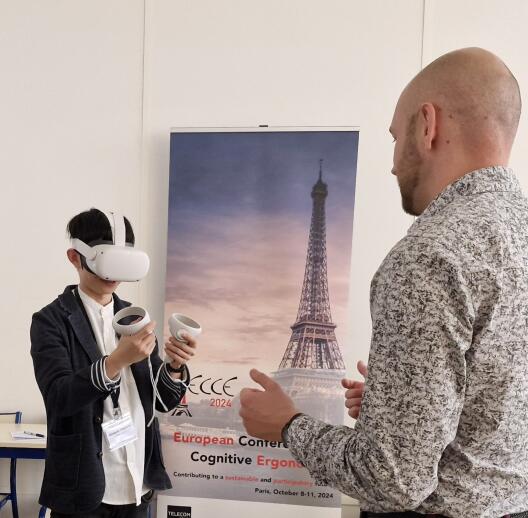
Together with Prof. Panos Mavros (Télécom Paris) and Dr. Marie Simonet (ETH Zürich), Jakub has co-organised a workshop on 3D Sketching Across Cognition, Design, and Art at the European Conference on Cognitive Ergonomics in Paris. Around 15 people tried out different methods for 3d sketching and discussed newly emerging opportunities, as well as persistent challenges of the 3d sketching technology.
SPARC receives new seed funding grant

Our project What does it take to learn a building? Bringing individualisation to architectural analysis received funding from the Joint Institute for Individualisation in a Changing Environment (JICE). This joint initiative funded by the Bielefeld University and the University of Münster is dedicated to the study of individualisation from the interdisciplinary perspective.
Our project will explore how small differences in individual walking paths affect a person’s ability to navigate and comprehend large public buildings, like airports or hospitals. Current architectural analysis tools overlook personal experiences, focusing on the overall layout rather than how people interact with their surroundings. The project uses virtual reality and online experiments to examine how individual trajectories and perspectives impact navigation. The findings could lead to improved design of complex public spaces.
New publication in the "3D Sketch Maps" project
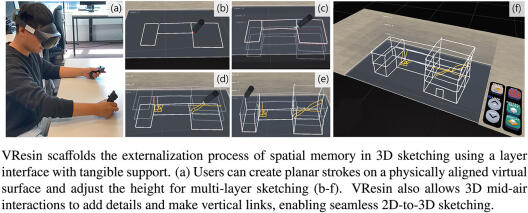
A new study lead by our project partner Tianyi Xiao from ETH Zürich introduces "VResin" - a tool that lets users create 3D sketch maps in virtual reality to better express spatial memory. By combining 2D surface sketching with mid-air drawing, VResin helps users make more accurate 3D sketches. SPARC and SIL Labs contributed methods for analyzing these sketch maps. Tested with 48 participants, the tool shows promising potential for use in areas like spatial cognition research and design. The findings are published in the International Journal of Human-Computer Studies.
Presenting "3D Sketch Maps" at EWIC workshop

Jakub presented ongoing work on 3D Sketch Maps at the 18th European Workshop on Imagery and Cognition (EWIC) in Naples, Italy.
The EWIC series is a biennial workshop dedicated to the study of mental imagery and spatial cognition. Other topics of interest to the EWIC community include: perception, attention, working memory, language comprehension, impact of new technologies.
Talk at Future Cities Lab Singapore

Jakub Krukar visited Future Cities Lab Singapore and gave a talk on "Ecological Validity of Architectural Cognition". Future Cities Laboratory (FCL) Global is a research collaboration between ETH Zurich and the Singapore universities with support from the National Research Foundation (NRF). It operates under the auspices of the Singapore-ETH Centre (SEC).
The Architectural Cognition in Practice team concentrates or bringing cognitive research into architectural workflows.
SPARC and SIL host a workshop on 3D SketchMaps
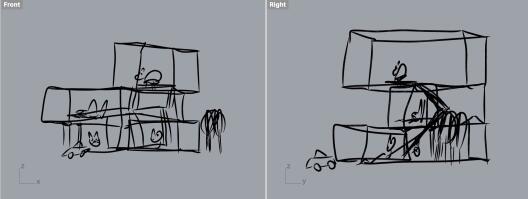
SPARC and SIL have jointly hosted a workshop on "3D SketchMaps". The project, in which we partner with Chair of Geoinformation Engineering and Chair of Cognitive Science (both at ETH Zürich), is sponsored by the Swiss National Science Foundation within their Sinergia programme focusing on "interdisciplinary, collaborative and breakthrough research".
The goal of the project is the extend the popular method for studying human memory of spatial environments - "sketch maps" - from a traditional paper-based 2D format to Virtual Reality-based 3D set-up. First publication describing the concept is already available here.
Online talk for partners in Korea
Jakub gave an online talk for Ji Young Cho's lab at KyungHee University in Seoul, South Korea who focuses on spatial ability performance in interior design and architecture.
SPARC co-organises the 'HabiTech' workshop

SPARC co-organises a workshop to help define a new research area – the building-level counterpoint to digital civics - how do new technologies enable and empower the inhabitants of a multi- occupancy buildings? This workshop will gather interdisciplinary experts in HCI, design, architecture, data ethics, and cognitive science to reflect on the role of HCI in cultivating digital civics inside buildings.
The workshop will be a rolling full-day hybrid event with options to participate online or offline in Honolulu, Hawai'i during the Computer-Human Interaction (CHI) Conference.
Workshop date: May 11th, 2024 https://habitech.space
New publication on visual attention in art galleries
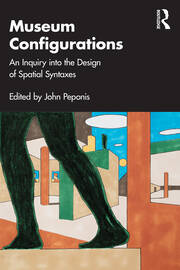
In a new book on museum architecture edited by Prof. John Peponis from GeorgiaTech I write about 'glancing away' from art works. Why do we look away "into empty space" when spending time in museums and why has this been ignored by empirical research?
The chapter is available here.


